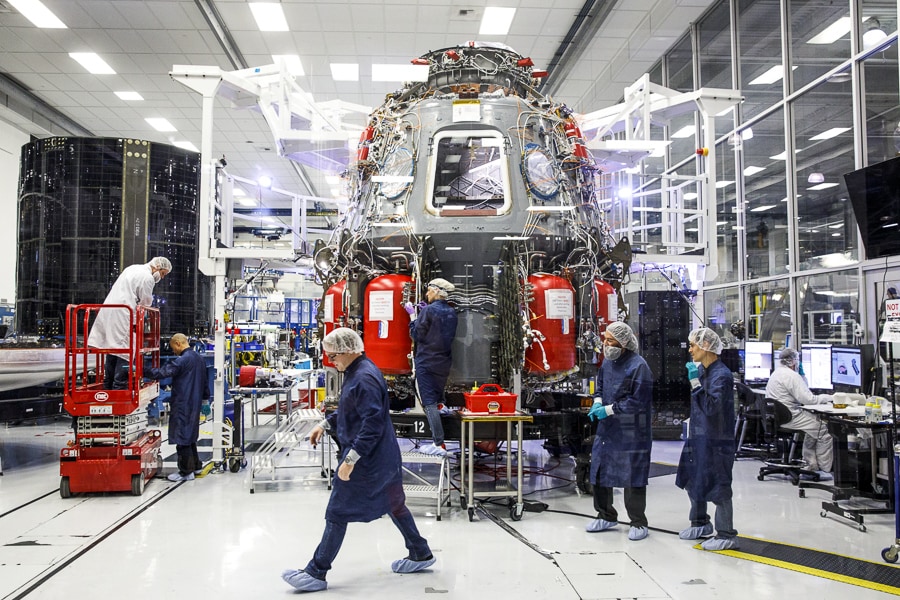
SpaceX ignored sexual harassment, former interns say
Three women who interned at the Elon Musk-led space tech company claim they were harassed by other interns and men in senior positions
 Employees at the Space Exploration Technologies Corp. (SpaceX) headquarters in Hawthorne, California, U.S. Oct. 10, 2019.
Employees at the Space Exploration Technologies Corp. (SpaceX) headquarters in Hawthorne, California, U.S. Oct. 10, 2019.
Image: Patrick T. Fallon/Bloomberg via Getty Images
Three women who interned at SpaceX said they faced sexual harassment and unwanted advances from other interns as well as men in more senior positions across a range of workplace incidents, some of which went without punishment.
Ashley Kosak, a former intern who later became a full-time engineer at SpaceX, wrote in an essay published on the website Lioness on Tuesday that a male intern groped her in 2017 while she was doing dishes in company housing shared by interns. She also said a male colleague ran his hand up her torso in 2018 at a company event.
She reported the 2017 episode that year to her manager, she said, and the 2018 episode to SpaceX’s human resources department the day after it happened. She said she never received responses to those complaints. “Given my tenuous position at the company, I felt powerless,” she wrote in the essay.
Kosak said she reported other incidents to human resources. In one instance, she said, she used an internal tip line that was supposed to be anonymous, but after submitting the complaint, she was contacted by human resources staff who asked her questions about the reported harassment. She took a medical leave of absence last month and resigned from the company later in the month.
©2019 New York Times News Service







